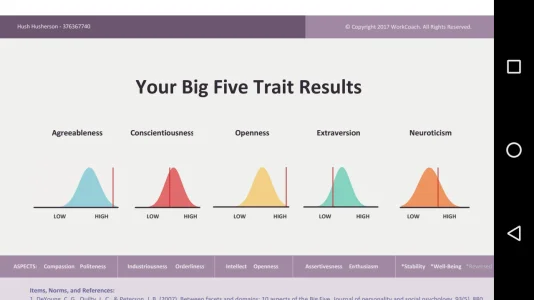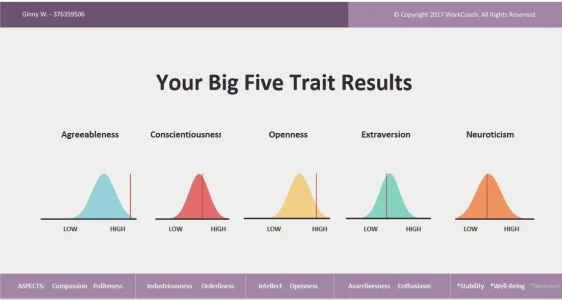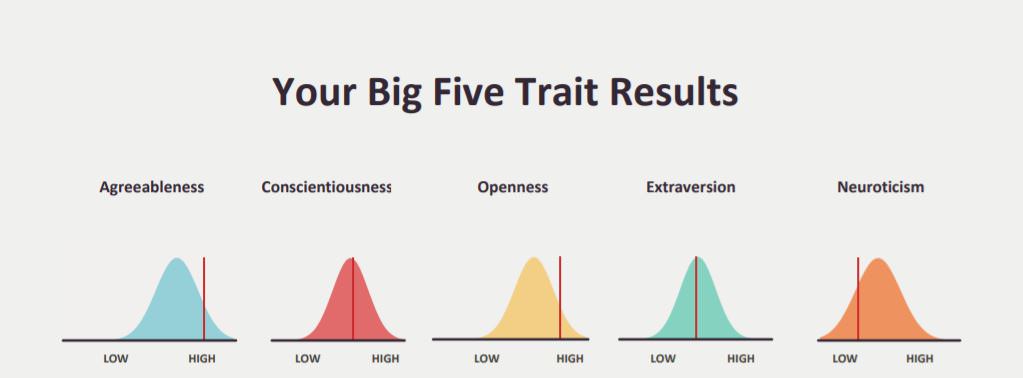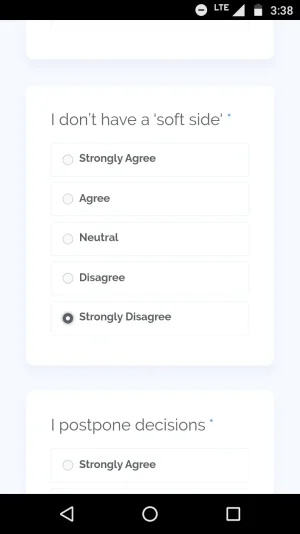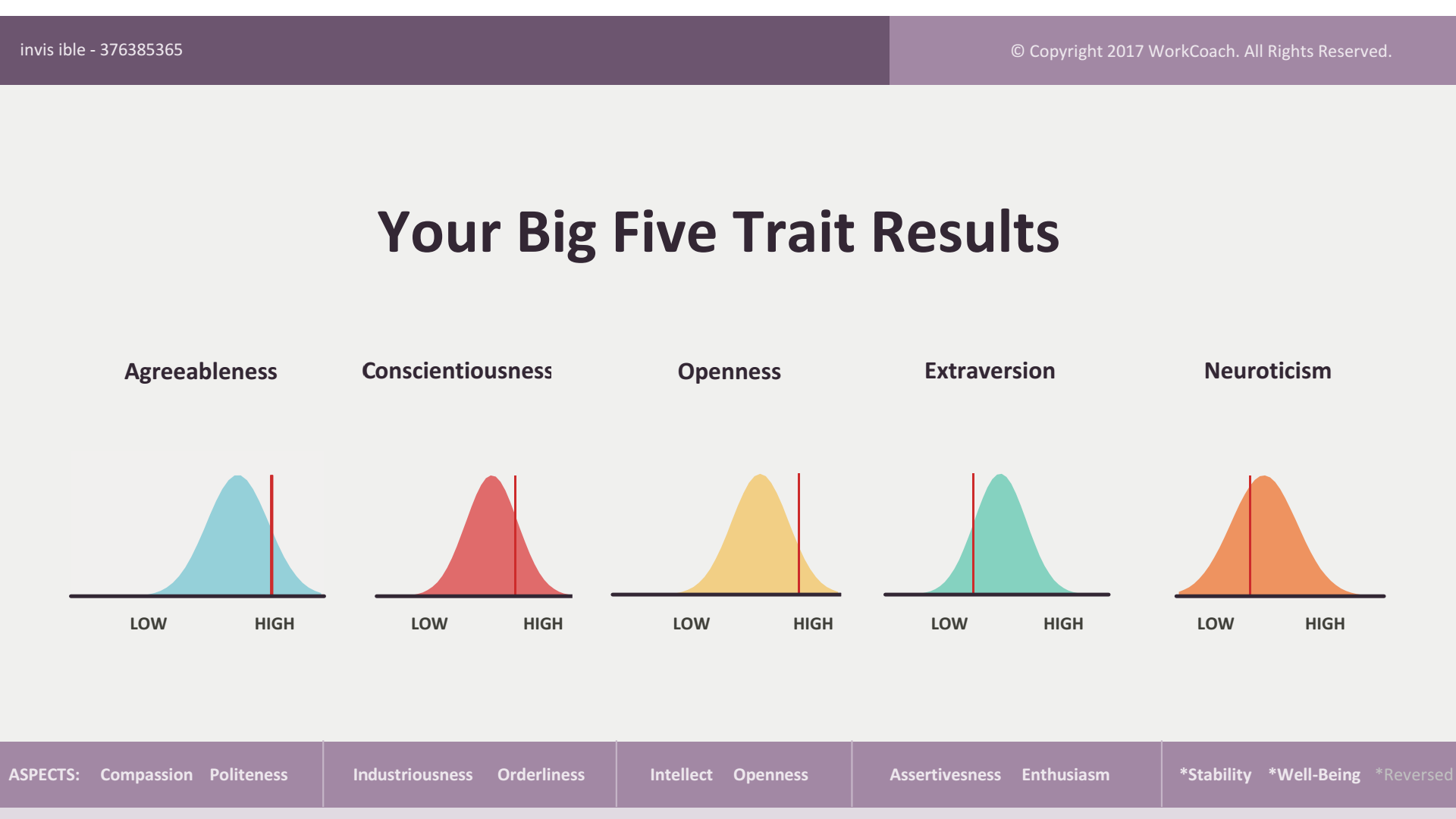- MBTI
- INFJ
- Enneagram
- 954 so/sx
Where do you fall? Links to information and (paid) test provided. I'm more interested in discussing your personal thoughts on the concept than what your answers to a test are/would be but feel free to take it and share if you are so inclined.
1) Neuroticism
Volatility
Withdrawal
2) Agreeableness
Compassion
Politeness
3) Conscientiousness
Industriousness
Orderliness
4) Extraversion
Enthusiasm
Assertiveness
5) Openness-Intellect
Openness
Intellect
https://en.wikipedia.org/wiki/Big_Five_Aspect_Scales
http://ipip.ori.org/BFASKeys.htm
https://understandmyself.com/IasIntegration/Purchase/Setup/17
1) Neuroticism
Volatility
Withdrawal
2) Agreeableness
Compassion
Politeness
3) Conscientiousness
Industriousness
Orderliness
4) Extraversion
Enthusiasm
Assertiveness
5) Openness-Intellect
Openness
Intellect
https://en.wikipedia.org/wiki/Big_Five_Aspect_Scales
http://ipip.ori.org/BFASKeys.htm
https://understandmyself.com/IasIntegration/Purchase/Setup/17

